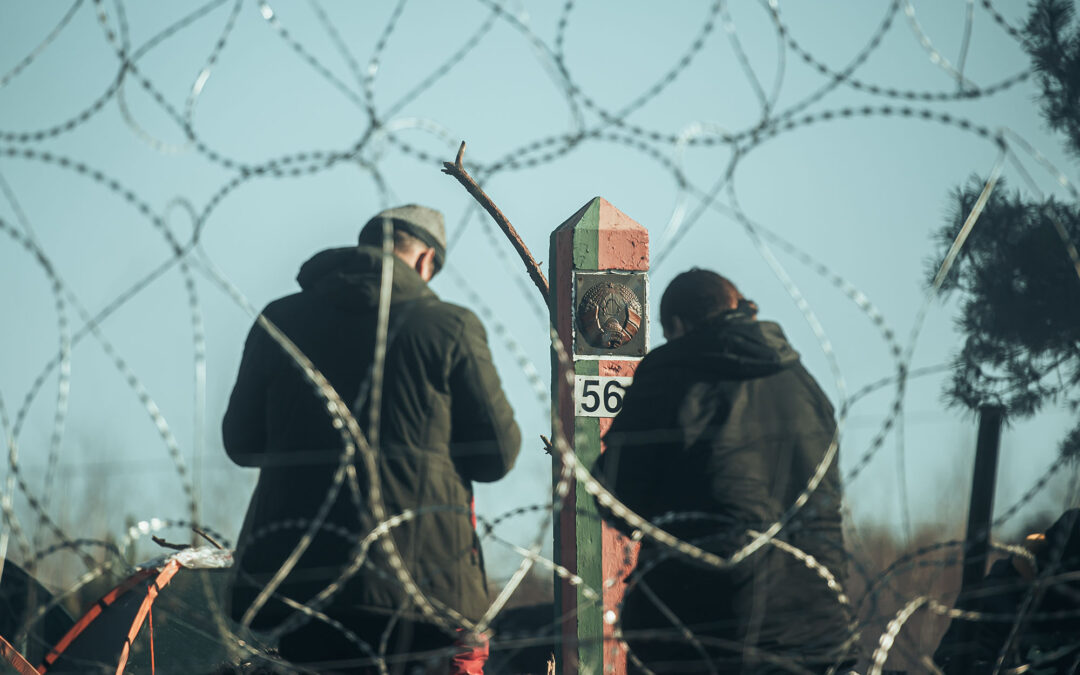The European Commission has proposed temporary changes to the EU’s asylum rules to ease the pressure on Poland, Lithuania and Latvia, which have in recent months faced tens of thousands of attempted crossings over their borders with Belarus by mainly Middle Eastern migrants and refugees.
The changes allow the three countries to only accept asylum requests at designated locations, give them longer to process them, lower the level of support they must provide to those being held, and make it easier to return people whose applications have been rejected.
The measures are a necessary response to the “attack” being orchestrated by Belarus but still “fully respect fundamental rights and international obligations”, says the commission. Amnesty International, however, says that the new rules will “undermine human rights and rule of law”.
When one of us is attacked, we are all attacked.
Today, to protect our borders, and to protect people, we are giving flexibility and support to 🇱🇻,🇱🇹,🇵🇱 to manage the emergency at the EU's external border with Belarus, without compromising on human rights.#StrongerTogether
— European Commission 🇪🇺 (@EU_Commission) December 1, 2021
“In the past weeks, we have managed to bring the EU’s collective weight to bear in the face of the hybrid attack directed at our union,” said the commission’s Vice-President for Promoting our European Way of Life, Margaritis Schinas.
“Collectively, the EU made clear that attempts to undermine our union will only solidify our solidarity with one another,” he continued. “Today we are giving living manifestation to that solidarity.”
The new rules, which must now be approved by national leaders at the European Council, “will equip Latvia, Lithuania and Poland with the means needed to respond to these extraordinary circumstances in a controlled and swift manner and to operate in conditions of legal certainty”, he added.
Home Affairs Commissioner Ylva Johansson noted that the crisis at the border has abated, thanks in part to the EU’s “intense efforts”. But “the situation remains delicate”, she noted. Poland is still seeing attempts every day by people to cross the border, often with the help of the Belarusian armed forces.
The main elements of the new rules proposed by the commission, which would be put in place for an initial period of six months, are:
- Permitting Poland, Lithuania and Latvia to allow asylum applications to be lodged only at designated points, such as border crossings. This would prevent the current common practice of people crossing at any point on the border – often after breaking through fencing – and then applying for asylum on the other side.
- Allowing the three member states to extend the registration period for asylum requests from the current 3-10 days to 4 weeks.
- Allowing them to “focus reception conditions [for asylum seekers] on the covering of basic needs”, such as shelter, food, water, clothing and medical care. These requirements are lower than usual – not including education, for example – notes Reuters.
- The member states can “apply simplified and quicker national procedures including for the return of people whose applications for international protection have been rejected”.
The commission also calls for EU bodies, such as the European Asylum Support Office and the Frontex border agency, to be ready to help with processing asylum applications, screening applicants, managing reception and return operations, and providing intelligence.
Polish media report that the new rules, which were requested by Poland, Lithuania and Latvia, faced opposition from Věra Jourová, the commission’s vice president for values and transparency, and Justice Commissioner Didier Reynders.
The pair reportedly warned that the measures are directed against migrants, rather than the Belarusian regime. However, a majority of the commission backed the proposals, according to reports.
Eve Geddie, head of Amnesty International’s European institutions office, warned that the rules “will further punish people for political gain and weaken asylum protections. By sacrificing rights and normalising dehumanisation and suffering of people at borders, the EU is undermining its standing on human rights and rule of law”.
Lithuania’s interior minister, Agnė Bilotaitė, however, welcomed the measures. “We appreciate the European Commission’s efforts to address our concerns in face of a hybrid attack from Belarus regime,” she tweeted.
Today's proposals will further punish people for political gain and weaken asylum protections.
By sacrificing rights rights & normalizing the dehumanization & suffering of people at borders, the EU is undermining its standing on human rights and rule of law at home & abroad. https://t.co/1xztWeLC73
— Eve Geddie (@evegeddie) December 1, 2021
Main image credit: Irek Dorozanski / DWOT (under CC BY-NC-ND 2.0)

Daniel Tilles is editor-in-chief of Notes from Poland. He has written on Polish affairs for a wide range of publications, including Foreign Policy, POLITICO Europe, EUobserver and Dziennik Gazeta Prawna.




















